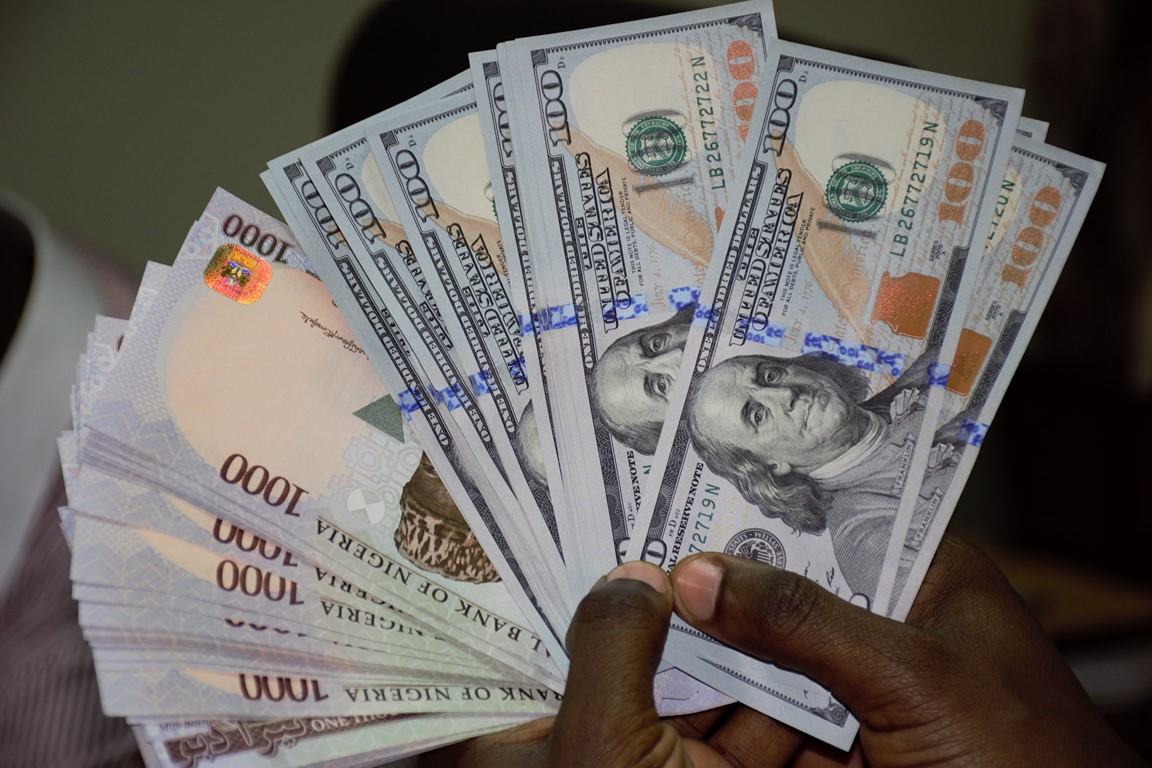
In a surprising turn of events, the Nigerian naira witnessed a significant plummet against the United States dollar in the informal market on Wednesday, culminating in a closing rate of 900 naira per dollar. This latest development comes merely two weeks after the local currency was valued at 960 naira per dollar in the black market.
Despite recent gains, the naira’s upward trajectory was abruptly interrupted, succumbing to a downward spiral attributed to the recurring scarcity of the US dollar in the black market. Earlier this week, the naira’s exchange rate fluctuated within the range of 850 to 880 naira per dollar, causing apprehension among market participants.
On Wednesday, the decline of the naira was exacerbated, not only in the parallel market but also on the Investor & Exporter (I&E) window, where it dropped to 773.42 naira per dollar. Just the day before, the naira had settled at 757.10 naira per dollar on the I&E Window.
Various Bureau De Change (BDC) operators across different Nigerian cities and airports reported the dollar trading at rates ranging from 895 to 905 naira per dollar on Wednesday. Sanusi Ibrahim, a BDC operator at the Lagos airport, disclosed that transactions occurred within the range of 890 to 900 naira per dollar. Yusuf Kareem, operating in Abuja’s Central Business District, noted, “The dollar remains elusive, and we had to sell at 900 naira today.” Similarly, at the Allen Avenue Ikeja in Lagos, Alhaji Gambo Aliu, a currency dealer, cited a rate of 905 naira per dollar.
Despite persistent efforts to stabilize the naira, its freefall seems unyielding. The Central Bank of Nigeria (CBN) has expressed its intention to take stricter measures, threatening to revoke the operating licenses of BDCs found in violation of its regulations. Aminu Gwadabe, President of the Association of Bureau De Change Operators of Nigeria, confirmed that during a sensitization engagement with BDC operators, the CBN reinforced its stance that operators breaching the allowable margin, ranging from -2.5 percent to +2.5 percent on the average weighted rate of I&E closing rate, and failing to comply with reporting standards by August 31, 2023, risked license revocation.
In a move to align BDC trading rates with those in the I&E forex window, the CBN issued a directive in a circular dated August 17, 2023. The circular emphasized that the spread between buying and selling rates set by BDC operators should adhere to the allowable limit of -2.5 percent to +2.5 percent of the previous day’s Nigerian exchange market window’s weighted average rate. Furthermore, BDC operators are mandated to submit regular financial reports as part of the upgraded forex rendition system.
The naira’s continued volatility raises concerns over its resilience in the face of external economic pressures, prompting both market players and regulatory bodies to recalibrate their strategies in a bid to stabilize the currency’s value.
Comments are closed.